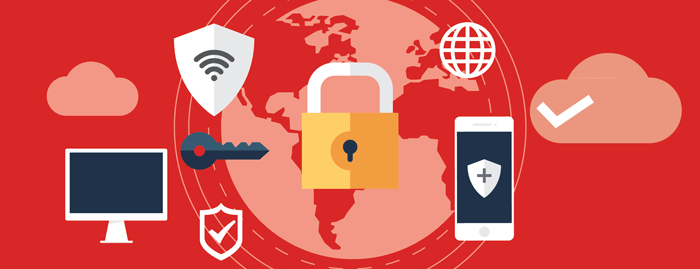It’s no secret that every business has the responsibility of keeping company and employee data safe. This includes securing intellectual property. Documents sitting on your copier tray, in your unprotected hard drive, sitting on your desktop and in folders are at risk every day. These seven simple tips will help you learn how to safeguard your data to protect yourself and your company.
1. Protect and proactively monitor your network.
Your network should be monitored by your in-house Information Technology department or by a third party Managed Network Services company. Malware has been plaguing office computers for years. It has more recently become the source of many data breaches. Malware can be placed unknowingly on your computer. This happens as you innocently read a publication, download an article from an untrusted source, and even from reading an email. Having the right protection on your network, from firewalls to desktops, will give you piece-of-mind and keep your data safe.
2. Be aware of the applications you install on your smart device.
Mobile applications are a cyber attackers dream. Apps running in the background could be collecting information from your device without you even knowing. Data breaches can also be unlocked by collecting your information through social media.
3. Don’t click on suspicious links in text messages or emails.
It seems like that is common sense, but you can never be too safe. Text messages and emails can come disguised as a friend or even your boss. These texts could be asking you to do something that may seem out of character. It is important to pay attention to the context of the emails and messages to see if there are any red flags. It’s not worth the risk, even if it is a simple request. If something doesn’t feel right from the messages, reach out directly to the assumed sender. Be sure to notify the person of suspicious behavior in case one of their accounts was hacked into.
4. Shred your old documents and statements.
Most companies and consumers receive many pieces of junk mail each day. This junk mail still holds PII (Personal Identification Information). Thieves can take your information by simply dumpster diving. If it has your name or your company’s name on it, consider shredding it with a reputable shredding provider. Even if you don’t think you need to shred a document, it’s better to keep your data safe rather than leaving it up to chance. Check out this article for a list of commonly shredded documents.
5. Implement a clean desk policy.
Furthermore, the data sitting on your desk is at risk. Anyone could walk by at any time and see confidential data. This includes coworkers, guests, and even after hour vendors. A clean desk policy at work can prevent a data breach by simply locking your computer at night, throwing away sticky notes with passwords on it, and even scanning your confidential documents to the cloud or a document management software system.
6. Train your employees to protect their data.
Simple procedures like cleaning desks, reporting suspicious activity, and logging off their computers can easily protect confidential data and mitigate risk at any company. In addition, consider creating a policy where only your IT department is allowed to download software to corporate devices. Having the IT team be the source of software approval will reduce the risk of dangerous malware. Empower your employees to safeguard their data.
7. Have a procedure in place when employees move on.
Whether your employee is terminated or has accepted a position at another organization, it is important to have a post-employment procedure in place. If these employees have access to your sensitive company information, you’ll want to ensure that information is wiped from the systems they had access to. Remove them from your company intranet, wipe the data from their cellular devices if access was provided, and ensure all physical files are kept intact and not taken once the employee leaves.
Above all, having a firm plan in place in your company initiatives for data security is growing increasingly more important. For more information on how you can protect your organization and to join the growing initiative to stop cyberattacks, please take a look at Staysafeonline.org.
